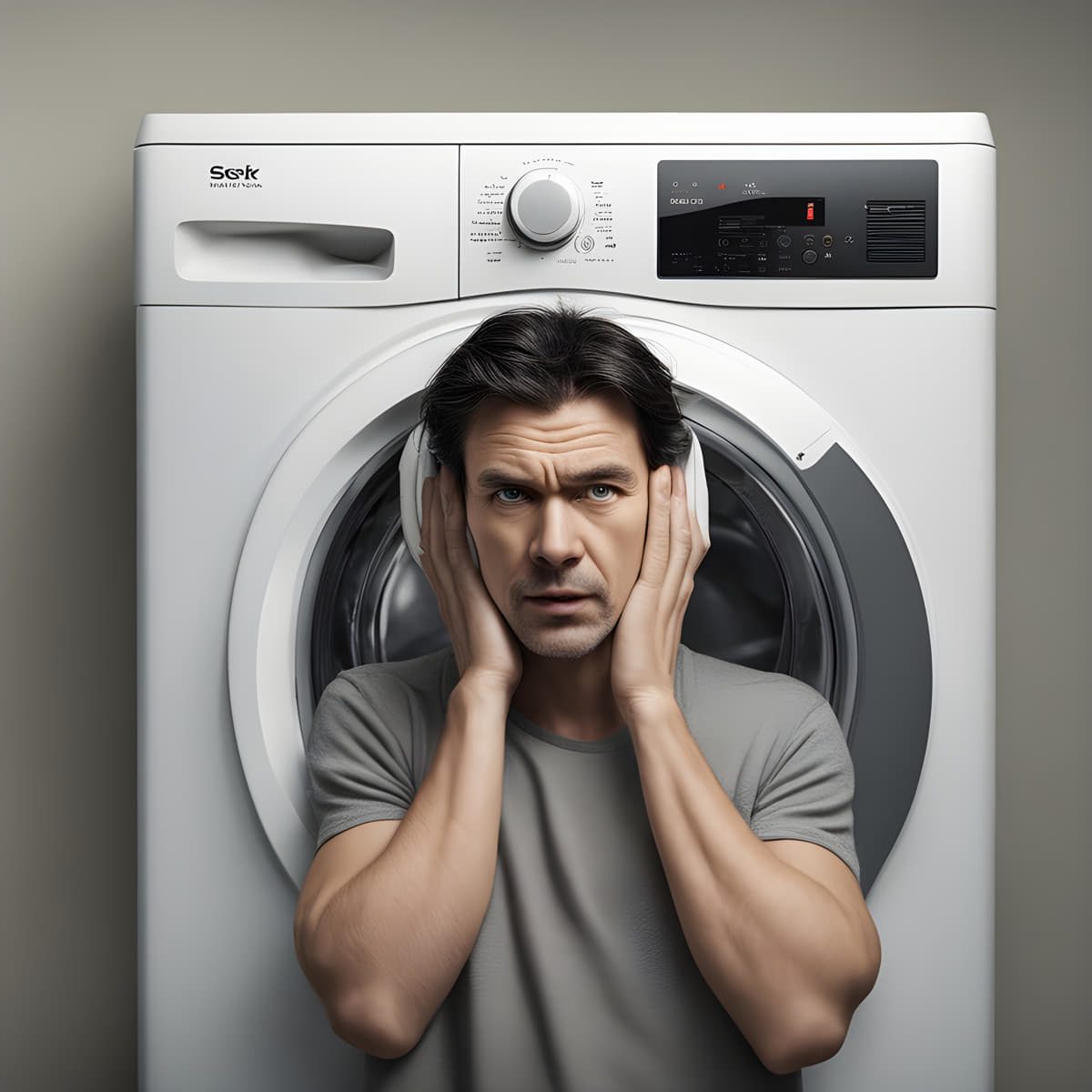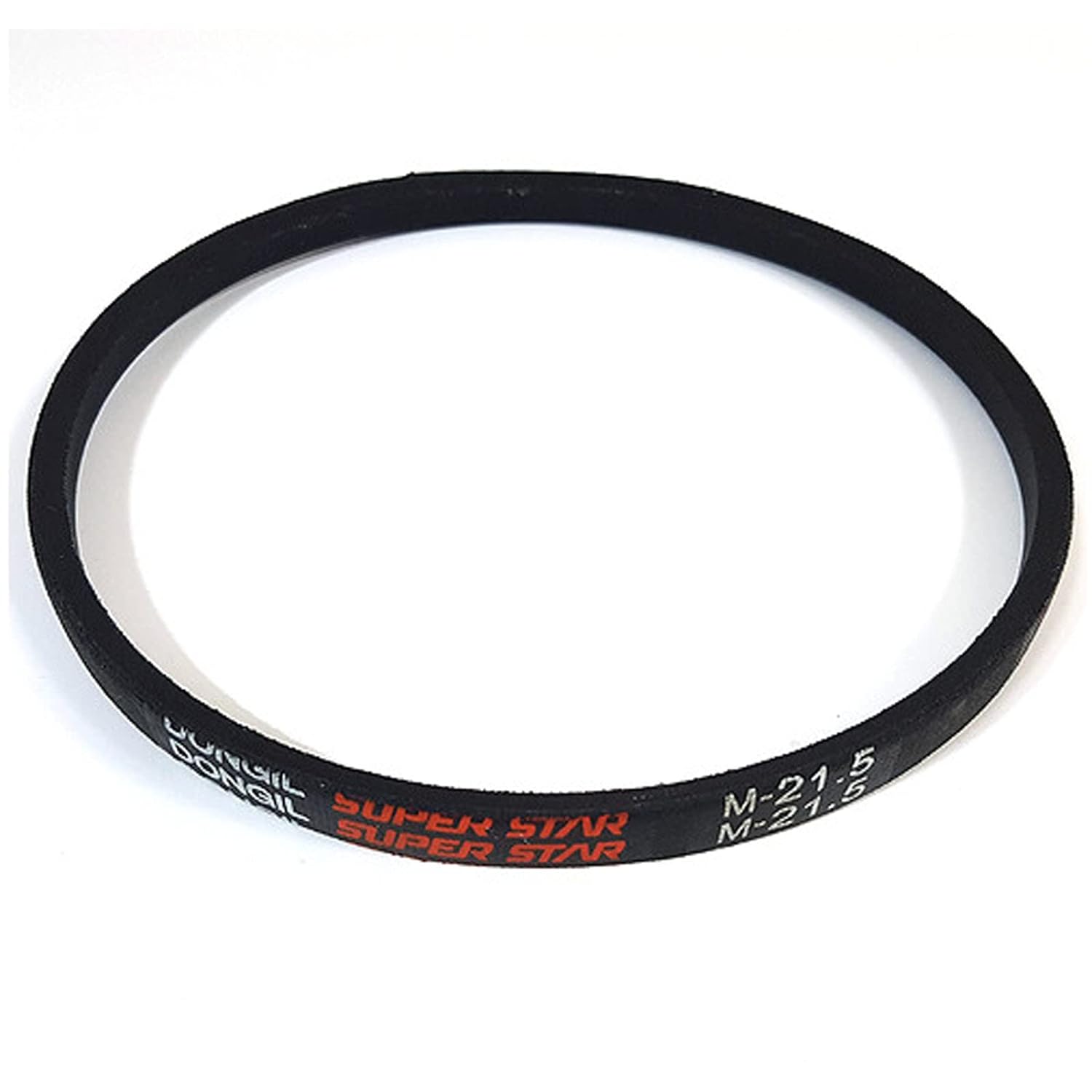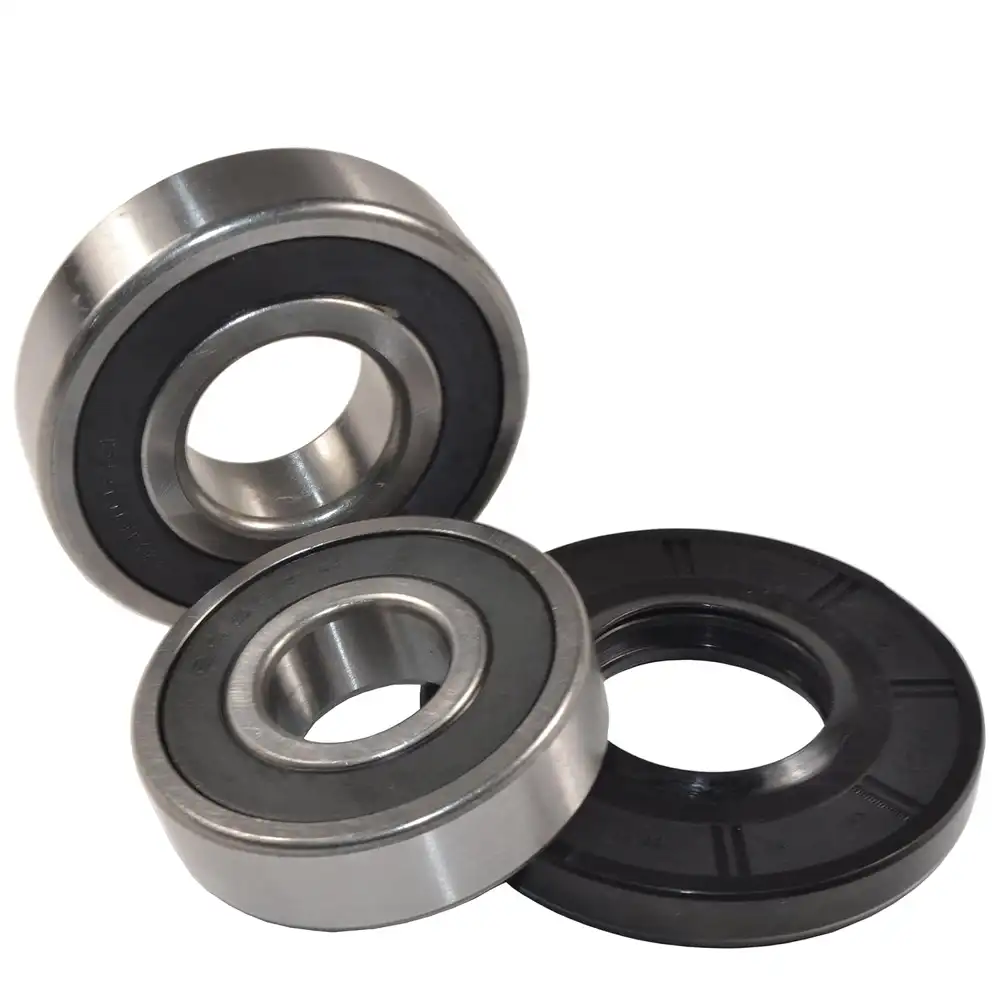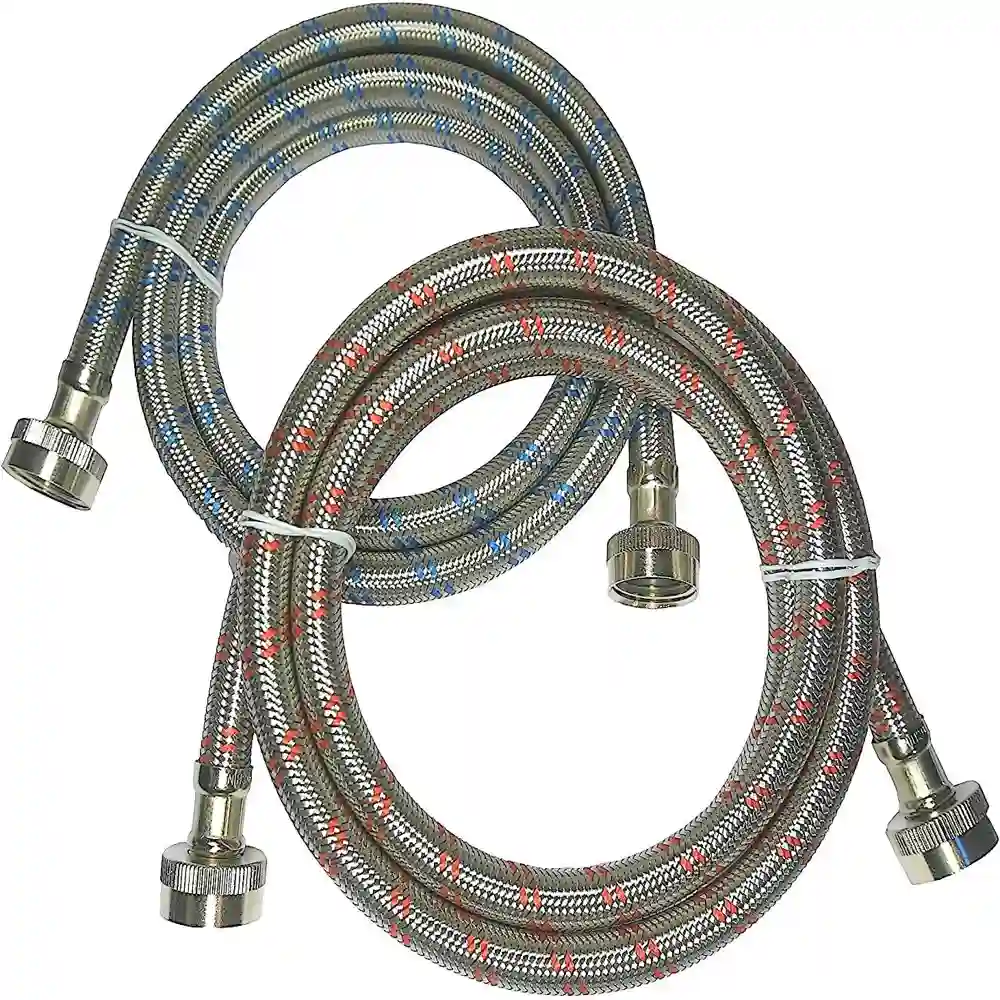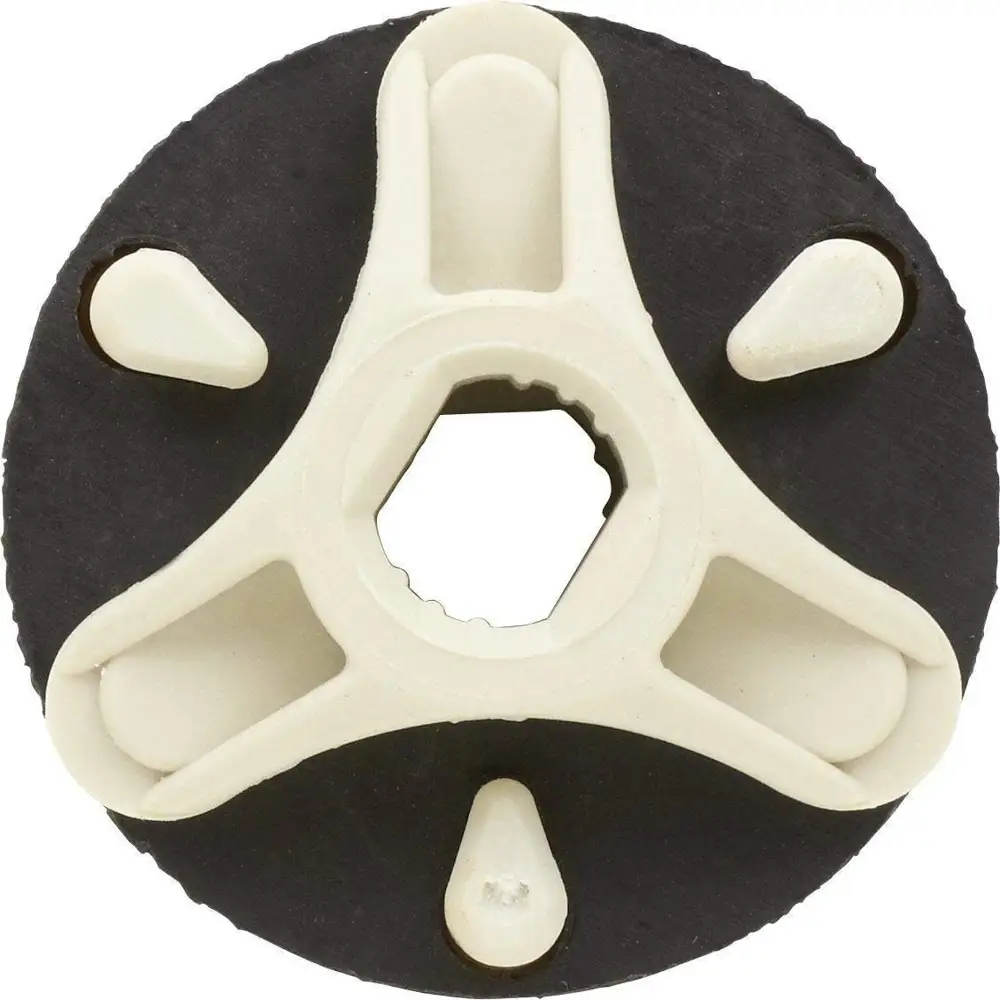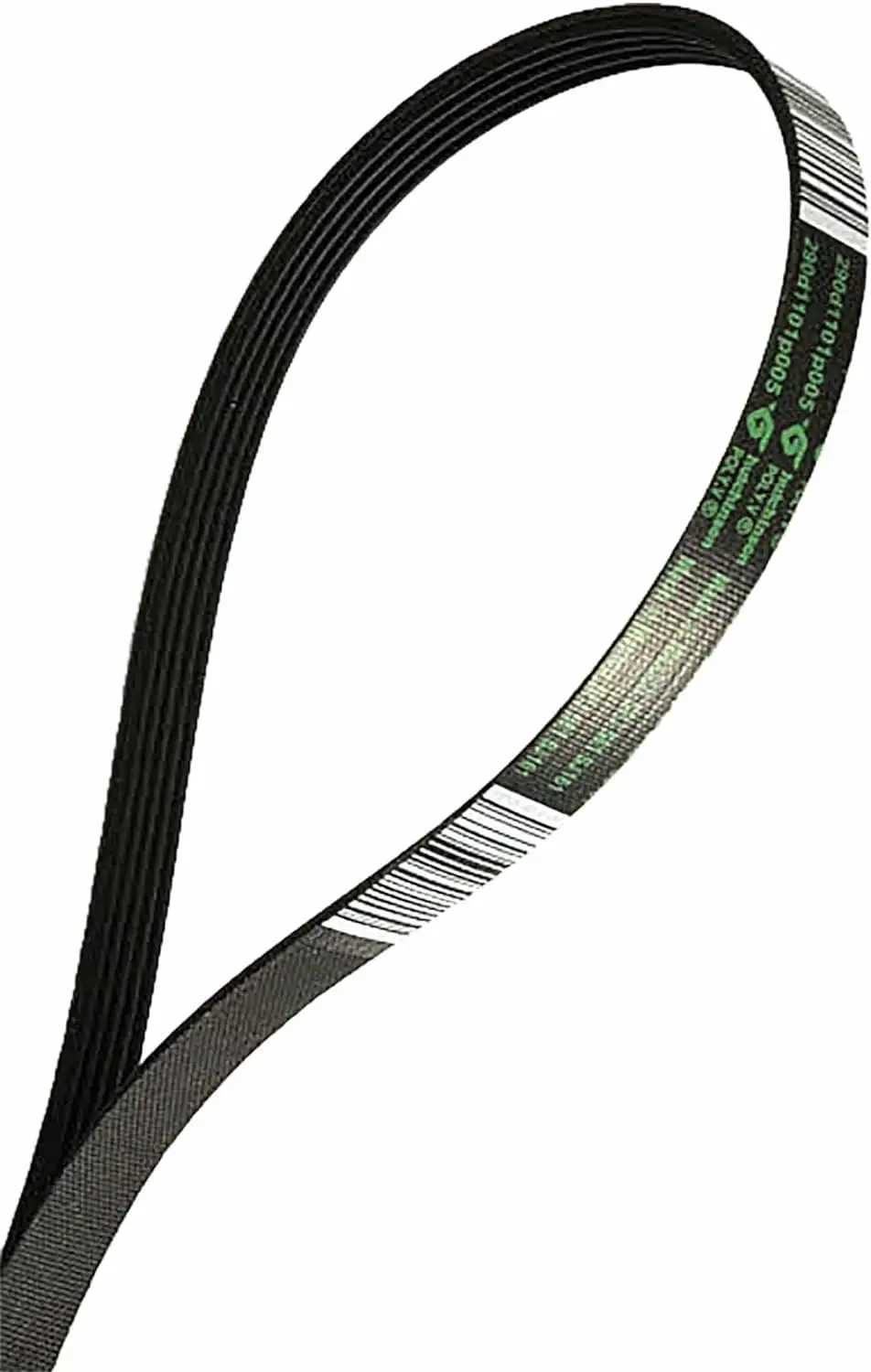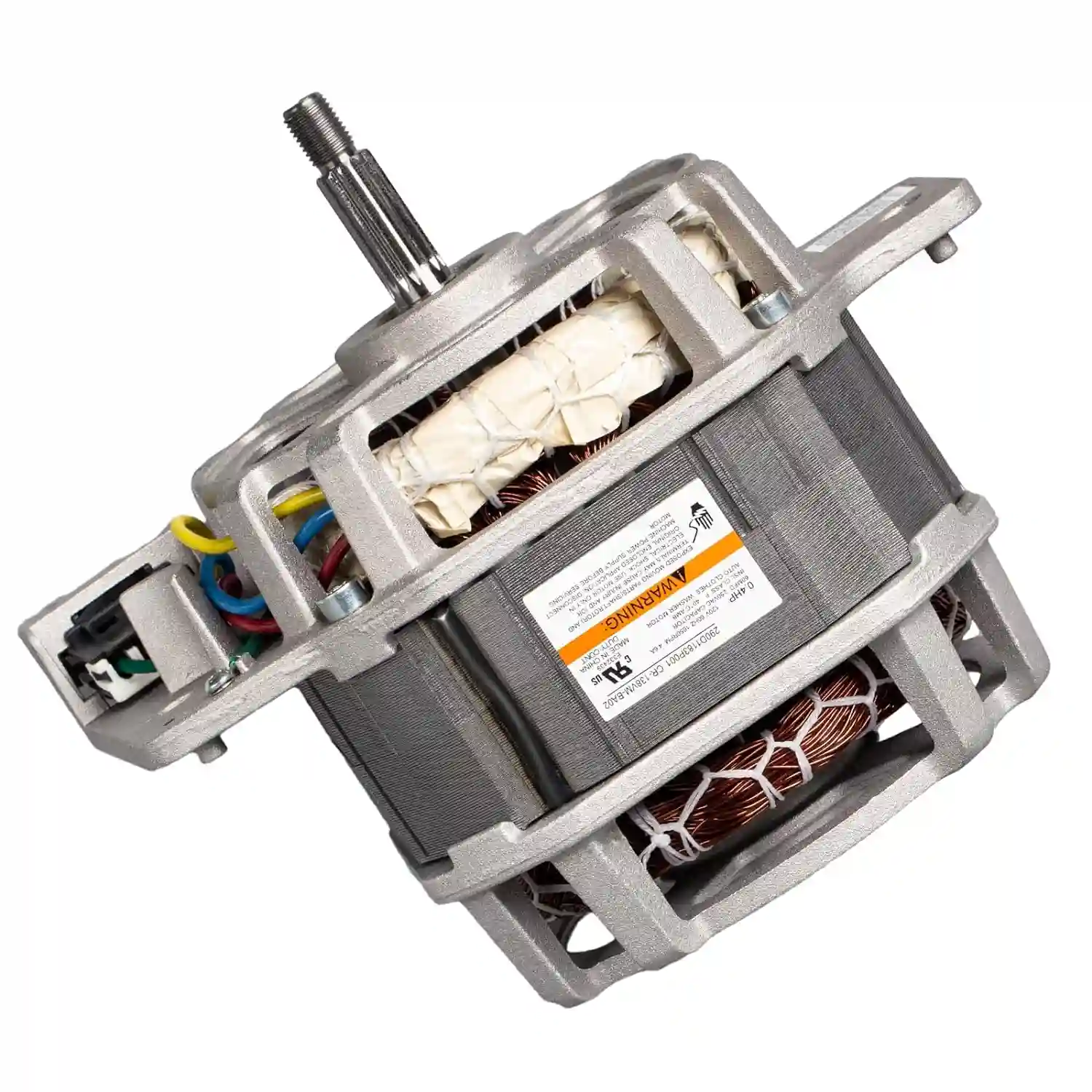As an Amazon affiliate, we earn a commision from qualifying purchases.
Read this if your washing machine makes a loud noise when spinning…
During a wash cycle, your washer might make several kinds of sounds.
But do you know what it means if your washing machine makes a loud noise when spinning?
While some of these sounds are normal, others are signaling to you that something might be up with the unit.
And, you will need to take some troubleshooting steps to get rid of the problem.
Now, in this guide, I will tell you what different kinds of spin cycle noises mean and how you can correct the abnormal noises.
Washing machine makes a loud noise when spinning – what the sounds mean and how to fix the unit
Squealing / squeaking noise
Squealing/squeaking noises are typically made by metal objects rubbing against each other like an un-oiled merry-go-round.
Oftentimes, squealing/squeaking noises will occur if you are overloading your washing machine.
So, start by trying to reduce the load size – remember not to fill the unit more than ¾ of its capacity.
However, if you are not overloading the appliance, proceed to check the drain belt.
To tell if the belt is bad, visually inspect it for these two signs:
- If it is loose
- It is worn out or torn
To fix a loose belt, tighten it back into place using the belt pulley.
Conversely, if the belt is torn or worn-out, it means it is bad hence will need replacing.
To point you in the right direction, here’s a consolidated list of drive belt replacement parts for some common washer brands in the market(Please check specific belt size for your washer before buying -M19.5/ M20.5 /M21.5- If size is same, you can order it):
| Washing machine brand | Where to get replacement part |
| Samsung | Order it on Amazon |
| GE | Order it on Amazon |
| Whirlpool & Maytag | Order it on Amazon |
| Kenmore | Order it on Amazon |
| Frigidaire | Order it on Amazon |
If the belt checks turns out okay, chances are high that you might have faulty tub bearings.
However, to be sure, inspect the bearings for any signs of corrosion or wearing out – they tend to wear out after years of repeated use.
If the bearings are defective, simply swap them with good tub bearings to make the squealing/squeaking noise stop.
Below is a table listing the recommended replacement tub bearing for the most common washing machine models.
| Washing machine brand | Recommended replacement |
| Samsung | See it on Amazon |
| GE | See it on Amazon |
| Whirlpool & Maytag | See it on Amazon |
| Kenmore, LG (Tub bearing + seal kit) | See it on Amazon |
| Frigidaire(Tub bearing+seal kit) | See it on Amazon |
Washer makes grinding noise
Oftentimes, the causes of grinding noises when a washer is spinning are similar to those that cause squealing noises.
So, to troubleshoot and fix grinding washer noises, first have a look at the above section – squeaking noise.
However, in certain models such as the Samsung WA54R series, a grinding noise will occur if you are using a drip pan with a large bulge without installing the included leg rings.
So, if you’re using this washer series, you can read Samsung’s leg rings installation guide to be sure you are doing it the right way.
Grating noise
A grating noise is usually due to either a clogged debris/drain filter or a clogged drain pump.
That means if you want to get rid of this noise, you start by cleaning the drain filter.
Quick tip: In most front-load washers, you will find the drain filter at the front bottom corner of the washer. However, in a few brands such as Maytag and Whirlpool washers, you can find this filter behind the back panel just next to the drain pump. As regards top-loads, not many have this filter.
If you are not sure how to locate your washer’s drain filter, worry not as we have a guide on the same…
READ: Where is the filter on my washing machine?
Clicking sounds
Oftentimes, your washer will make clicking sounds between spin cycles as the water inlet valve opens and closes to let water in.
To be more specific, when the washer is filling with washing or rinsing water.
In other words, this is a normal sound and it should not worry you.
However, if you note the washer is making consistent clicking sounds and it’s not filling with water, do the following:
- Confirm that both water faucets are fully open.
- Straighten any kinks that might be along the water inlet hoses.
- Get a compatible replacement hose to swap out any leaking water inlet hose.
- Clean the mesh filters at the back of the washer.
This is because the constant clicking noise could be due to the inlet valve trying to click open to allow water to flow in but the water is not flowing.
Washing machine makes a loud thumping noise when spinning
One of the most common reasons for a washing machine making loud thumping noises is an unevenly distributed load.
That’s why the most advisable course of action is to start by evenly redistributing the load size.
If this does not work, proceed to visually inspect the motor coupling… If it is defective (corroded or worn-out), you just found the cause of your washer making loud thumping sounds.
The best remedy for a defective motor coupling is to change it out.
Below is a table to help you shop for a replacement coupling depending on your brand of washing machine:
| Washing machine brand | Recommended replacement |
| Samsung, MayTag, Kitchenaid | See it on Amazon |
| GE | See it on Amazon |
| Whirlpool | See it on Amazon |
| Kenmore | See it on Amazon |
| Frigidaire | See it on Appliance Parts Pro |
Belt-drive washers might also make loud thumping/shrieking sounds if the belt is bad.
So, if your washer is a belt-drive model, you can also check if the belt is loose or worn out… The good thing about a loose belt is that you can tighten it using the drive pulley.
On the other hand, your only way out of a defective belt is to replace it.
To make life easier for you, I have compiled a list of replacement belts for some common washer brands in the market below:
| Washing machine brand | Recommended Belt replacement part |
| GE | Check it on Amazon |
| Samsung | Check it on Amazon |
| Whirlpool, Maytag, & Amana | Check it on Amazon |
| Kenmore | Check it on Amazon |
| Frigidaire & Electrolux | Check it on Amazon |
Click followed by a short thumping or knocking sound (clunk/clunking noises)
If you are hearing a clicking sound followed by a thumping/knocking noise that fades after some time, it means that the drive system is transitioning between modes… That is between agitation & spinning, and vice versa.
As such, this is a normal sound and it will not require servicing.
Jet engine noises – washing machine sounds like an airplane
Oftentimes, this will occur in front load washers.
If your washer sounds like a jet when spinning, chances are that either the tub bearings or the spider arms have failed.
So, start by checking if the tub bearings and spider arms are corroded, cracked, or broken.
Of course, once you identify the faulty part, replacing it will be the best route to take.
Since these parts are not universal, I have taken time and again curated a list to help you get the right part.
Here it is:
| Washer brand | Tub bearings replacement part | Spider arms replacement part |
| Frigidaire, Electrolux | Buy on Amazon | |
| Samsung | Buy on Amazon | Get it on Amazon |
| LG | Buy on Amazon | Get it on Amazon |
| Whirlpool, Maytag | Buy on Amazon | |
| GE | Buy on Amazon | |
| Kenmore | Buy on Amazon | Get it on Amazon |
However, I should mention that replacing these parts is labor and time-intensive as it involves separating the outer and inner tubs.
And, if you opt to call in a technician, you can expect to spend anywhere upwards of 500 bucks.
Washer making loud jet engine noises – maintenance tips to keep in mind
To prevent the re-occurrence of the loud jet noise coming from your washer, here are a few dos and don’ts (from Samsung) that you should follow:
- Ensure you’re using the right amount of detergent.
- Only use HE detergent in HE washers.
- Avoid overloading your washer.
Loud roaring or scraping sounds
If your washing machine is making loud roaring or scraping noises, it most likely has a faulty tub bearing.
So, check if the bearings are bad – bad bearings will be corroded, worn out, or broken.
Of course, if your washer’s bearings are bad, your best bet is to replace them –the table of recommended replacement bearings is again here to guide you:
| Washing machine brand | Recommended replacement |
| Samsung | See it on Amazon |
| GE | See it on Amazon |
| Whirlpool & Maytag | See it on Amazon |
| Kenmore, LG (Tub bearing + seal kit) | See it on Amazon |
| Frigidaire(Tub bearing+seal kit) | See it on Amazon |
Quick tip: Most top loads have two tub bearings – one located at the bottom of the outer tub and another at the base of the transmission. So, be sure to inspect both bearings.
Rattling or tapping washing machine noises
Oftentimes, rattling or tapping noises mean that something is vibrating against the washer as it spins.
Having said that, here are a few things you should do to help you get rid of the rattling/tapping noises:
- Confirm that your washer is level – at times, the tapping noise might be due to the washer vibrating on the floor. Alternatively, getting and installing washing machine foot shock absorbers (check pricing) might also help with the issue.
- Remove any foreign objects (such as pins or coins) that might be caught between the drum and the tub.
- Look for anything that might be rattling against the washer such as a power cord, water inlet hose, or drain hose, and tie it firmly to the washer.
If none of these are the cause of the rattling noise, proceed to check the drain pump for foreign objects.
Here’s the thing: The noise you are hearing might be a small object rattling against the drain pump’s impeller.
Do note that if the impeller blades are damaged, your best bet will be to replace the drain pump.
Washing machine makes a loud noise when spinning – more noises
Humming, buzzing, or whirling washer noises
If you’re hearing quiet humming or buzzing noises coming from your washer, this is pretty normal – that is the sound of the motor running. Though it could also be the drain pump running during the drain cycle.
However, if you note that the humming/buzzing sound is louder than usual, odds are that something is acting up.
The most common reason for this is if the washer is not getting any water.
To fix the issue, start by making sure that both water faucets are fully open.
Also, straighten out any kinks or twists that might be on the water inlet hose.
If during this process, you discover that one (or both inlet hoses) is leaking, it’s advisable that you change it.
Next, remove the mesh filters and gently scrub them using a toothbrush under running water… The aim of this is to remove any calcium deposits that might be clogging the filters.
If the loud humming/buzzing noise persists, test the water inlet valve for continuity… If it lacks continuity, it might mean that it’s bad in which case replacing it is advisable – here are a few recommended replacement parts for some popular washer brands:
| Brand | Inlet valve replacement part |
| Samsung | View price on Amazon |
| GE | Check Price on Amazon |
| Whirlpool, Maytag, KitchenAid, & Amana | Purchase it on Amazon |
| Kenmore | Purchase it on Amazon |
| Electrolux & Frigidaire | View it on Amazon |
| LG | Purchase it on Amazon |
| Bosch | See it on Amazon |
However, if the valve has continuity, confirm that it is getting at least 120v AC when the washer tries to fill with water.
If it is not, try disconnecting and reconnecting the wire connectors to the valve since they might be loose.
Additionally, check if the wires are broken or burnt. If they are, replacing them should do the trick.
Other troubleshooting solutions you can try
On the other hand, if water is flowing into your washer, it is likely the drive motor has failed.
With that in mind, start by disconnecting and reconnecting the wire harness connector to the motor… Also, repair it if it is broken (and replace it if it is burnt).
Quick tip: For the next step, you might want to have your washer’s tech sheet (or service manual) nearby – it will help you figure out the motor’s wiring.
Insert the multimeter probes into the two pin holes (that supply power to the motor) on the wire connector and run a spin cycle… Are you getting a reading of 110-120v AC?
If not, it’s likely that the control board is bad.
Otherwise, the control board is good – proceed to the next troubleshooting steps below…
Next, carefully inspect the drive motor for these telltale signs of a defective motor:
- Try to turn the motor shaft by hand – if the motor is good, the shaft should turn freely.
- Look for any burn marks on the motor terminal and on the motor switch – burn marks indicate a defective switch.
If your motor fails any of these tests, it’s a good sign that it’s bad. In this case, I’d advise you to replace it – here are good replacement motors for some popular washer brands:
| Washer brand | Motor coupling replacement part |
| Samsung | Get it on Amazon |
| LG | Get it on Amazon |
| Whirlpool | Get it on Amazon |
| Kenmore | Get it on Amazon |
| GE | Get it on Amazon |
| Frigidaire & Electrolux | Get it on Amazon |
Washing machine making ticking or high pitch noises
If your washer is making ticking or high-pitched noises, it’s a good sign that there is a foreign object stuck inside the drain pump.
And, most times it shall be a metallic object such as pins, wires, or coins – the noise is from the impeller rubbing against these objects.
With that in mind, to stop the high-pitched noise, take out the drain pump and remove any foreign objects that might be caught in there.
Gurgling or slurping noises
You’re most likely to hear these noises when the washer enters the drain cycle.
But don’t worry since these sounds are part of the normal washer operation… It is the sound of waste water being removed from the washer.
Something else: Towards the end of the drain cycle, the pump might pull in air thereby causing the gurgling sounds.
Loud banging or knocking noises, washer shakes/vibrates uncontrollably or bounces around
These noises and vibrations can be due to one of the following:
- An uneven load
- The washer not being level
- It could be you have not removed the shipping bolts
- Defective suspension rods
- Worn-out shock absorbers
To know how these parts result in your washer making loud banging noises (and how to resolve the problem), I recommend you read our other article on the same: Washing machine making loud banging noise when spinning [fixed].
Washing machine makes a loud noise when spinning – parting words
While some washer noises are normal, others might be signaling a serious problem with your washer. I’m sure that with the help of this guide, you can now differentiate between normal and suspicious washer noises.
Something else: If you are not sure how to disassemble your washer, it’s advisable that you first watch one or two instructional videos on YouTube to guide you along. After all, you don’t want to mess up with the internal components as this might cost you an expensive service call.
Just remember to use your washer’s model number when searching for the video.
ALSO READ
How to tell if washing machine drain pump is bad quickly
GE top-load washer not spinning clothes dry? Try this

